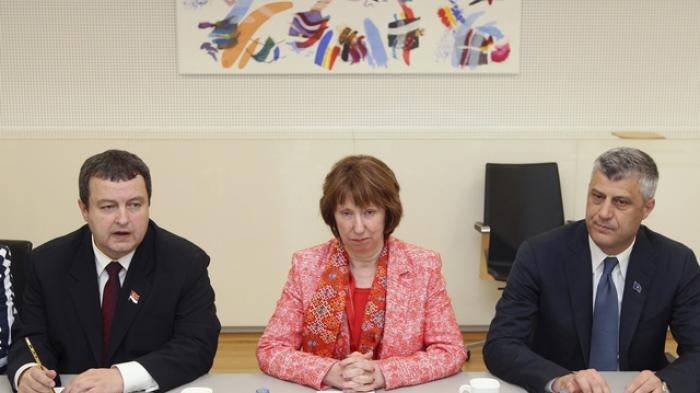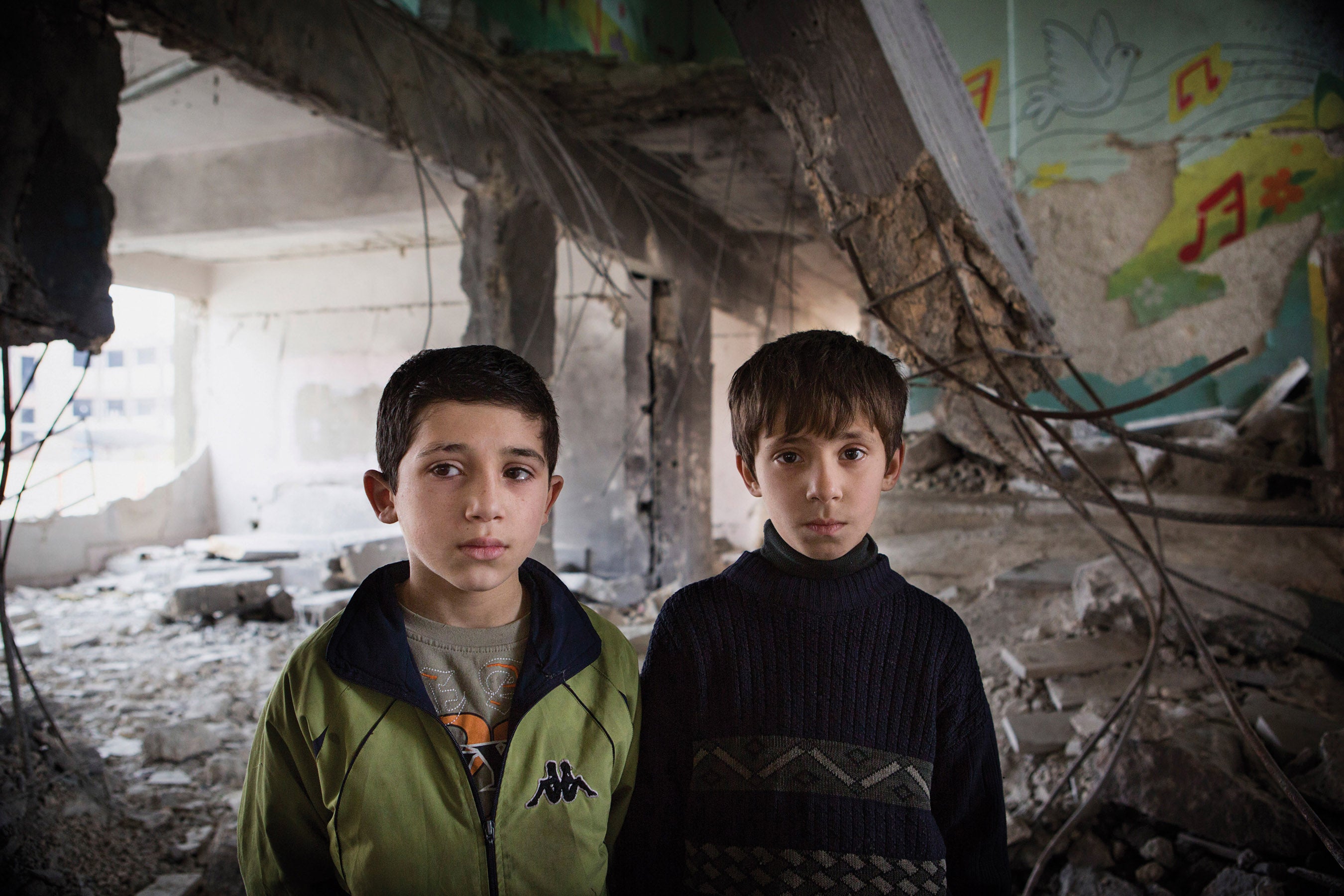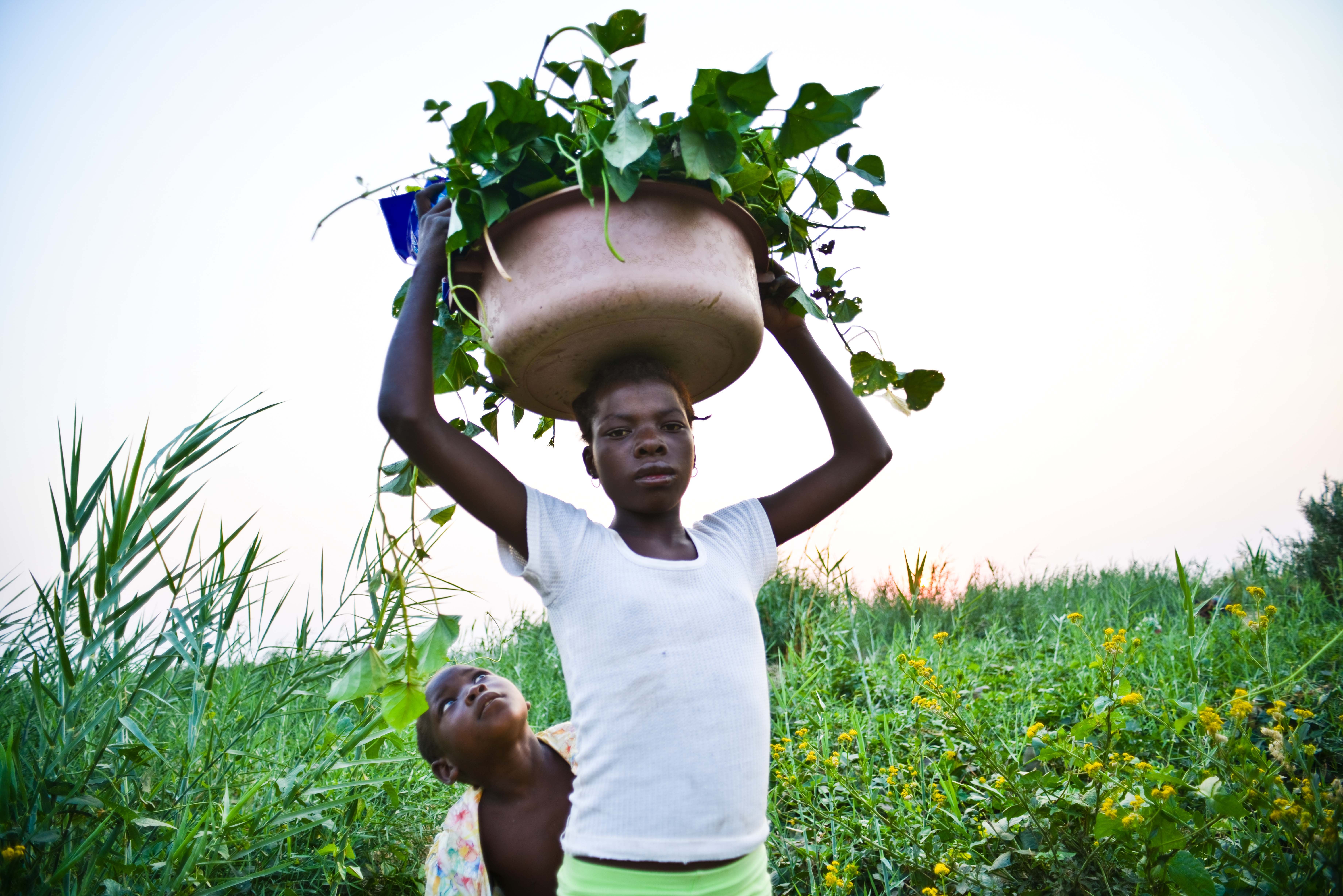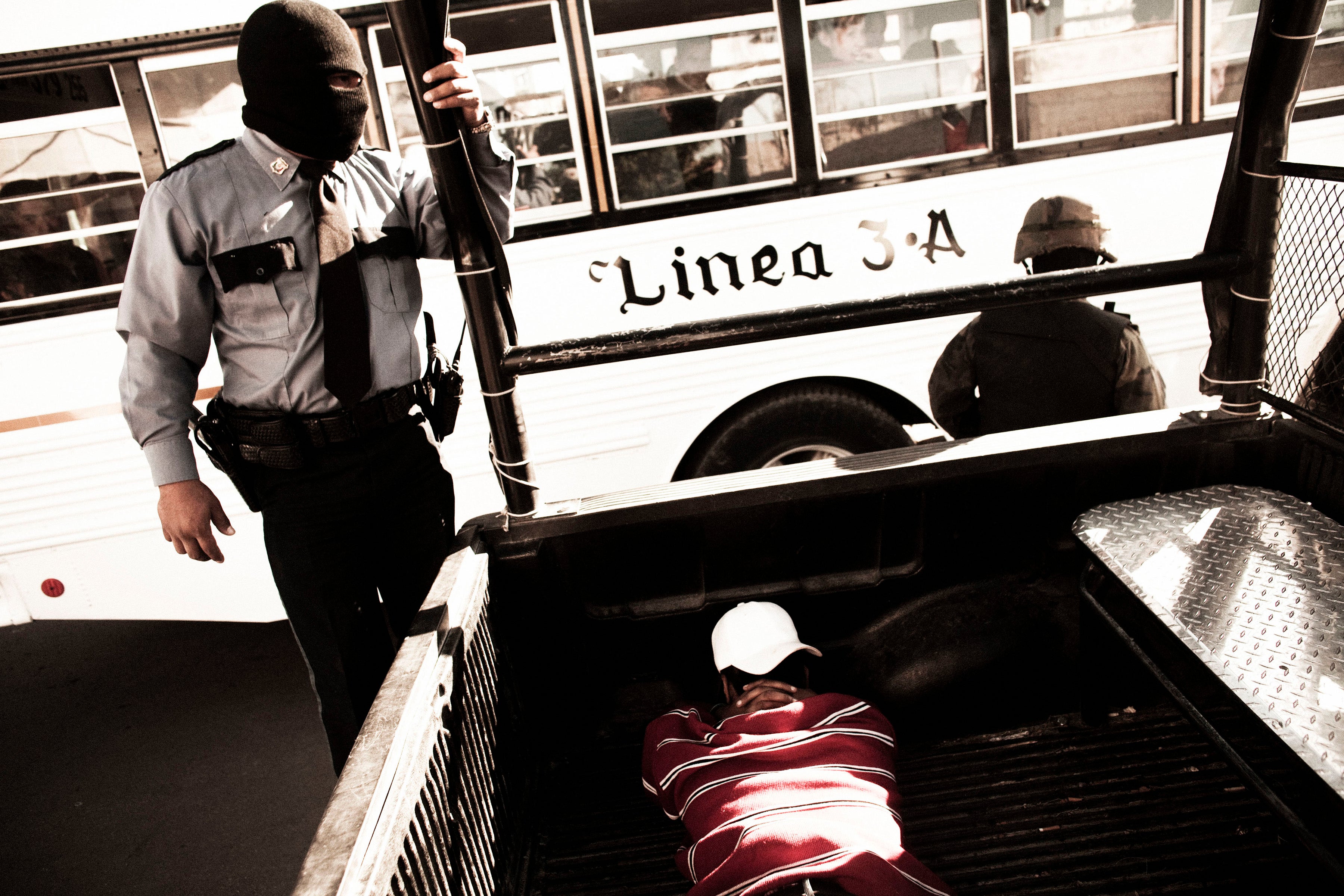Despite a historic agreement in April by the European Council to start European Union membership talks in January 2014 with Serbia, human rights concerns persist. The situation of ethnic minorities remains precarious, especially for Roma. Journalists continue to be targets of threats despite attempts to bring perpetrators to justice. The asylum system is weak and overburdened. The signing of a cooperation protocol between Serbian and Bosnian prosecutors offers potential to improve the slow progress in war crimes prosecutions.
Accountability for War Crimes
War crimes prosecutions progressed slowly in 2013. The Belgrade War Crimes Chamber reached convictions in six cases and acquitted two people in one case. The Office of the War Crimes Prosecutor indicted three people for crimes against civilians. Fourteen prosecutions were pending at time of writing.
In February, the chamber sentenced seven members of the “Sima’s Chetniks” paramilitary unit to a total of 72 years’ imprisonment for killing 28 Roma civilians, raping and torturing three Roma women, and destroying the mosque in Skocic in Bosnia and Herzegovina.
In July, the chamber sentenced Petar Ciric, of the Vukovar Territorial Defense corps of the Yugoslav National Army, to 20 years imprisonment for participating in the torture and murder by firing squad of 200 Croatian prisoners of war in November 1991.
Also in July, the chamber ordered the Serbian government to compensate three Kosovo Albanians for torture and inhuman treatment following their unlawful detention in May 1999 when Serbian forces occupied the Kosovar village of Novo Cikatovo.
In February, Serbia signed a war crimes protocol with Bosnia facilitating the mutual transfer of information and evidence of war crimes. In July, this resulted in an agreement to cooperate on investigations against 30 suspected war criminals believed to live in Serbia.
In April, Serbian President Tomislav Nikolic offered an apology on Bosnian TV in the name of the Serbian people for war crimes committed by Serb forces in Bosnia during the 1992-1995 war. The apology stopped short of calling the massacre in Srebrenica a genocide.
In late May, the International Criminal Tribunal for the Former Yugoslavia (ICTY) acquitted former Serbian security officials Jovica Stanisic and Franko Simatovic of criminal responsibility for the removal of Bosniaks and Croats from parts of Bosnia and Croatia between 1991 and 1995.
In November, the war crimes prosecutor charged two former officers in the Yugoslav army with the killing of 27 people in the Kosovo village Trjnje in 1999. Also in November, in a pending case against 11 former members of the Yugoslav armed forces, the war crimes prosecutor added the indictment of former army commander Toplica Miladinovic for ordering the attacks on four Kosovo villages where at least 45 people were killed in 1999.
Freedom of Media
In April, the editor-in-chief of Juzne Vesti, a Serbian investigative journalism platform, received threats over the phone from the director of the Nis Heating Plant, Milutin Ilic, and two others saying “watch what you publish” due to reporting on operations at the plant. The three men were charged in September with threatening the safety of a person performing tasks of public importance.
In June, Koreni and Intermagazin web-portals published an article calling Nedim Sejdinovic, a well-known journalist and human rights activist from the Vojvodina region in northern Serbia, an “Islamic thinker” and “Vojvodina separatist,” and suggesting that he should not feel safe in his hometown.
A long-awaited government commission was established in January to investigate the murders of three prominent journalists in Serbia more than a decade ago. The seven-member commission is tasked with analyzingall prior investigations, ascertaining why they failed, and creating the basis for future investigations.
Treatment of Minorities
Attacks and harassment against the Roma minority continued, but authorities brought some alleged perpetrators to justice. In March, a 17-year-old Roma boy died as a result of injuries sustained during a beating by several assailants. A 14-year-old boy was charged with manslaughter in connection with the attack. In August, a group of hooligans attacked a Roma settlement in Resnik, threatening residents and shouting racist slurs. At time of writing police had made four arrests.
Forced evictions and discrimination against Roma in education remain concerns. Authorities demolished approximately 40 homes in an informal Roma settlement in Belgrade in April, providing no alternative accommodation. Also in Belgrade, 50 Roma families faced imminent threat of eviction from their social housing at time of writing. Roma children continue to be disproportionally enrolled in schools for children with developmental disabilities. According to the European Roma Rights Centre, in the 2012-2013 school year, 22.8 percent of all students enrolled in special needs education were Roma.
Tensions between members of the Hungarian minority and Serb majority in the Vojvodina region in northeast Serbia continued. Groups of Serbs attacked Hungarians in separate incidents in January and February, in Temerin and Subotica, respectively, allegedly because of they were ethnic Hungarians. Police were investigating both cases at time of writing.
Sexual Orientation and Gender Identity
Despite landmark court decisions and a strengthened legal framework for the protection of lesbian, gay, bisexual, and transgender (LGBT) rights, members of the LGBT community continue to face intolerance and harassment. A local human rights group reported at least 30 threats per month on social media against members of the LGBT community involved in organizing the 2013 Pride Parade. In September, Serbia’s National Security Council banned the Pride Parade for the third consecutive year again citing security concerns. The Constitutional Court in May held that the ban on the 2011 Pride Parade violated the right to freedom of assembly and awarded damages to the Pride Parade Belgrade association. The Appellate Court in Novi Sad, northern Serbia, set a legal precedent in January when it fined a man for discriminating against a colleague on grounds of sexual orientation by calling him a derogatory term.
The criminal code was amended in December 2012 to prohibit hate speech on grounds of sexual orientation and gender identity, and to include hate motivation, including against LGBT people, as an aggravated circumstance in sentencing. The government adopted a national strategy for prevention and protection against discrimination in June.
Asylum Seekers and Displaced Persons
In the first eight months of 2013, Serbia registered 2,232 asylum seekers, up from 1,454 during the same period in 2012. Syrians comprised the largest national group (432 people).
Concerns remain with the capacity of Serbia’s two reception centers, which can only accommodate 280 people and are operating at near maximum capacity. According to the UN High Commissioner for Refugees (UNHCR), national asylum authorities are considering locations for a third reception center at this writing. For the first time since it assumed responsibility for the asylum procedure in 2008, the Asylum Office granted subsidiary protection to two applicants in 2013; to date it has never granted refugee status.
No movement occurred in finding a lasting solution for refugees and internally displaced persons (IDPs) from the Balkan wars. According to data from the Serbian Commissariat for Refugees and Migrations, as of September there were 54,000 refugees in Serbia, most from Croatia, and 210,000 IDPs, a majority of whom are from Kosovo. According to UNHCR estimates, 90,000 IDPs are in a situation of need, primarily with respect to housing.
In December 2012, the Serbian parliament criminalized the act of helping Serbian citizens to leave to seek asylum abroad. EU and individual member states, including Germany, Sweden, and Belgium, had pressured Serbian authorities to address the flow of so-called “fake” asylum seekers to the EU, most of whom appear to be Roma. There were no reported cases of people prevented from leaving Serbia in 2013.
Key International Actors
The European Court of Human Rights in a March decision ordered Serbia to investigate hundreds of cases of missing children following suspected deaths in hospital wards between 1970-1990 and to provide adequate compensation to parents.
In July, UN Secretary-General Ban Ki-moon urged Serbia to intensify efforts to determine the fate of over 1,700 people who disappeared during the 1990s war. The same month, the UN Committee on the Elimination of Discrimination against Women expressed concerns about the increasing number of women murdered or abused by their spouses and ex-spouses and urged the government to ensure effective investigations, prosecutions, and punishment of perpetrators.
In October, while acknowledging some improvements in the areas of media freedom and judicial reforms, the European Commission’s annual progress report on Serbia urged authorities to strengthen the independence of key public institutions, including the judiciary, and stressed the need for further reforms. It also called on authorities to enhance the protection of journalists, human rights defenders, and the LGBT population from threats and attacks.
Kosovo
Human rights protection remains weak in Kosovo. Despite reforms, the justice system continues to have a large backlog. Ethnic minority communities, Roma, Ashkali, and Egyptians in particular, continue to suffer discrimination. Journalists and human rights defenders were subjected to threats and attacks during 2013.
Tensions sometimes flared up in the divided north, despite improved political relations with Serbia, demonstrated by an April agreement establishing a special police commander and appeal court for the Serbian minority; an August agreement to establish permanent border crossings between Kosovo and Serbia in 2014; and the September dissolution of Serb parallel structures in northern Kosovo. In September, unknown assailants killed an EU Rule of Law Mission (EULEX) police officer in an attack against two EULEX police vehicles. Police were investigating at time of writing.
Impunity, Accountability, Access to Justice
Justice system reform enacted in January restructured the courts in an attempt to address the years-long case backlog. A new criminal code also entered into force in January, without three contested provisions deemed to restrict media freedom.
In the first nine months, EULEX judges handed down five war crimes judgments, reaching acquittals in all but one case. The September acquittal of Fatmir Limaj and nine others in a case concerning the 1998 mass murder of Serb and Albanian civilians in Klecka by Kosovo Liberation Army (KLA) forces illustrates weaknesses in Kosovo's witness protection program and challenges to prosecute crimes committed during and after the war. Testimony from a key witness, found dead in a park in Germany in December 2012, in what police called a suicide, was first ruled inadmissible and then, in the retrial, contradictory and unreliable.
In June, three men were sentenced to six, four, and three years respectively for beating and torturing Kosovo Albanian civilians illegally detained in the KLA Llapashtica detention center between 1998 and 1999. In October, the EULEX special prosecutor charged 15 people with war crimes against civilians and prisoners in 1998 at a KLA detention center in Likovac.
Hundreds of cases are pending before the Kosovo Special Prosecution Office, the War Crimes Investigative Unit of the Kosovo Police, and EULEX. At time of writing, 13 arrest warrants were outstanding concerning Serbs who are believed to reside outside Kosovo. EULEX continues to investigate 94 war crimes cases from the 1998-1999 Kosovo war, including massacres in Meja, Dubrava, and Krusha thought to involve more than 1,000 victims.
At the end of August, the Human Rights Review Panel (HRRP), an independent body set up in 2009 to review allegations of human rights violations by EULEX staff, handed down 15 decisions, finding violations in 5 cases. In the case concerning attacks by Kosovo Police and ethnic Albanians against Serbs during the 2012 Vidovdan Serbian religious holiday, the HRRP found that EULEX had failed to allocate adequate resources to provide protection or to conduct an effective investigation into allegations of human rights abuse.
Freedom of Media
Journalists continue to face a hostile environment. In May, a gas bomb was thrown into the house of the editor-in-chief of Radio Television of Kosovo, the public service broadcaster, causing damage but no injuries. Kosovo authorities condemned the attack and police were investigating. At time of writing, no arrests had been made.
In June, a mixed panel of Kosovo and EULEX judges acquitted former Mayor of Skenderaj Sami Lushtaku; the former owner of Infopress, Rexhep Hoti; its former editor-in-chief, Avni Azemi; and two other journalists of threats against Jeta Xharra, the director of BIRN, a regional news group. The court held that the 12 news items where Infopress referred to Xharra as “a Serbian spy,” and “embassy slut,” in response to a BIRN TV program dealing with alleged mismanagement in Skenderaj where Lushtaku was mayor at the time, did not pose a threat to Xharra.
Treatment of Minorities
Roma, Ashkali, and Egyptian communities, numbering approximately 40,000 people, are the most vulnerable and marginalized groups in Kosovo and continue to face difficulties obtaining personal documents, impeding their access to health care, social assistance, and education.
In July, the Ministry of Social Welfare changed the eligibility criteria for social assistance in a way that effectively prevents many Roma, Ashkali, and Egyptian families from accessing social benefits. The 2010 Strategy for Integration of Roma, Ashkali, and Egyptians continues to exist on paper only, with the government failing to allocate necessary funds to implement the strategy.
Movement occurred with respect to the 2010 Strategy on Reintegration of Repatriated Persons, including Roma, Ashkali and Egyptians, as central funds were transferred from the Ministry of Internal Affairs to the Municipal Offices for Communities and Return, responsible for identifying and supporting Roma, Ashkali, and Egyptian returnees. The impact of the fund transfer was too early to tell at time of writing.
Tensions between the Serb minority and Albanian majority flared in the second half of 2013, particularly in northern Kosovo, with a fatal shooting of an EULEX officer in September and threats against a Serb politician and his family in Mitrovica in the lead-up to local elections in November. Police were investigating both incidents at this writing. In defiance of a Constitutional Court ruling, the Kosovo Assembly passed in September an amnesty for certain crimes committed up until June 20, 2013, in “resistance” to Kosovo law enforcement authorities, including destroying property, assisting offenders after they committed crimes, and falsifying documents. Supporters of the amnesty law argue it is intended to facilitate the integration of Kosovo’s Serb minority.
Between January and August, Kosovo Police Services reported only 10 inter-ethnic incidents, without specifying whether such incidents involved physical injuries or property damage. International observers remained concerned that many inter-ethnic incidents are unreported, unregistered, and misclassified.
In January, approximately sixty graves in four orthodox graveyards were vandalized in Serb minority areas in Kilokot, Obilic, Prizren, and Kosovo Polje. Police arrested five people in January, including four under 18. Prime Minister Hashim Thaci condemned the vandalism and allocated 97, 000 EUR (US$ 131,000) to repair the graves. In February, two Serbian children were injured when an unknown assailant threw a hand grenade at a house in a suspected act of ethnic violence. The police were investigating at time of writing.
Human Rights Defenders
In March, at least two assailants severely beat prominent human rights defender Nazlie Bala outside her apartment. Anonymous death threats preceded the attack, citing her public support of a proposed amendment to an existing law that would provide compensation and rehabilitation to survivors of war crimes of sexual violence. A letter under her door read: “Do not protect the shame. Otherwise we will kill you.” Police were investigating at this writing.
A mob of about twenty men with clubs destroyed equipment and beat one employee during the launch of magazine Kosovo 2.0’s “sexuality” issue in December 2012. The issue included several articles related to lesbian, gay, bisexual, and transgender (LGBT) issues. In September, the EULEX mission and the Kosovo state prosecutor charged three people for inflicting bodily harm and inciting hatred.
Sexual Orientation and Gender Identity
LGBT people face social stigma and a culture of silence. Qesh, the only public LGBT organization in Kosovo, reported receiving several threats via social media related to an LGBT event in May hosted in cooperation with the government ministry for good governance. The organization reported one of these threats and police were investigating at time of writing.
Asylum Seekers and Displaced Persons
During the first eight months of the year, the Office of the United Nations High Commissioner for Refugees (UNHCR) registered 483 voluntary returns, including people from outside Kosovo and internally displaced persons, compared to 589 during the same period in 2012.
Deportations to Kosovo from Western Europe continued, with limited assistance provided upon return. Between January and August, the UNHCR registered 2,149 forced returns to Kosovo, including 378 Roma, 143 Ashkali, and 6 Egyptians. Most minorities were returned from Sweden (243) followed by Germany (150).
The lead-contaminated Osterode camp outside Mitrovica closed in December 2012 and the remaining five Roma, Ashkali, and Egyptian families were resettled to an apartment building in north Mitrovica.
Key International Actors
In a resolution adopted in January, the Parliamentary Assembly of the Council of Europe called on Kosovo authorities to fight corruption, make judicial reforms, address war crimes, protect and promote the rights of Roma, Ashkali, and Egyptians, ensure independence of media and adequate protection for journalists, and strengthen the fight against human trafficking. It also urged the European Union to focus its policy dialogue with Kosovo on strengthening the rule of law.
EU High Representative for Foreign Affairs Catherine Ashton welcomed Kosovo’s April agreement with Serbia aiming to normalize relations and advance European integration, but failed to stress the importance of strengthening human rights protection.
In an October progress report, a stabilization agreement between the EU and Kosovo, the European Commission (EC) raised serious concerns about the rule of law and protection of minorities. The EC urged Kosovar authorities to address corruption, organized crime, and attacks on the judiciary by strengthening legislation and its implementation and ensure security and protection measures for judges, prosecutors, witnesses, and plaintiffs. It also urged authorities to take further measures to reduce the backlog of court cases by enforcing court rulings. The report called on authorities to investigate and prosecute attacks motivated by ethnicity or religion and for prompt implementation of the national strategy and action plan for the Roma, Ashkali, and Egyptian communities.
During a June visit, UN High Commissioner for Human Rights Navi Pillay expressed serious concerns about rule of law, including the independence of the judiciary and case backlogs, as well as discrimination against Roma, Ashkali, and Egyptians, Serbs, Gorani, and other minorities and called for vigorous implementation of laws and tougher responses to hate speech and ethnic intolerance.
In July, UN Secretary General Ban Ki-moon called on Kosovo and Serbia to cooperate to resolve the issue of missing persons in Kosovo. To date, more than 1,700 people remain missing as a result of the war with Serbia.





